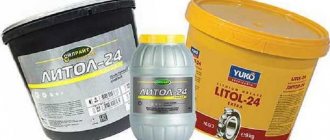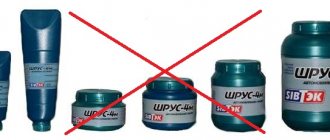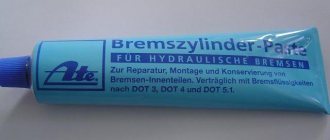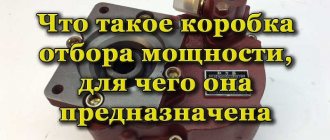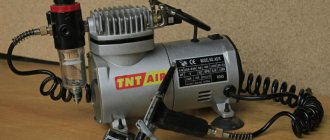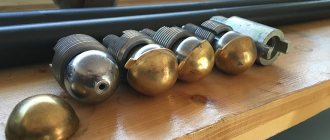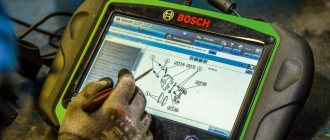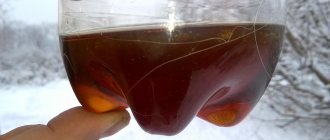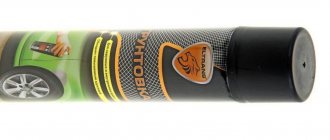- Lithium greases
- Advantages
- EFELE lithium greases
- Classification
- Silicone lubricants
- Essential lubricants
- Polyalphaolefin lubricants
- Complex lubricants
- Application
- Conclusion
Due to their versatility, availability and low cost, lithium greases have become one of the most popular types of lubricants.
Recommendations about the need to use this particular type of material can be heard not only in production, but also in small workshops and car service centers.
What are lithium greases and where can they be used? We will try to answer these questions in this article.
The main components of any grease are base oils and thickeners. The thickener forms a kind of structural frame that holds the base oils. In addition to them, the composition may include inhibitors, extreme pressure, antioxidant and other additives, as well as solid lubricating fillers, for example, copper powder, polytetrafluoroethylene (PTFE), molybdenum disulfide, etc.
Soaps - salts of fatty acids of lithium, calcium, aluminum, sodium and other metals - are usually used as thickeners. The type of grease can be determined by the type of thickener.
Lithium greases
Thus, lubricants that use simple or complex salts of lithium fatty acids as a thickener are collectively called lithium lubricants.
The pioneer in the development of these materials was the American engineer Clarence E. Earle. He was the first to create a lubricant based on simple lithium soap. US Patent No. 2274675 dated March 3, 1942 for this invention marked the beginning of a new era in the lubricants industry.
Knowing the type of thickener, you can determine the scope, many properties and characteristics of the material. The operating temperature range, mechanical stability, dropping point, and water resistance depend on the type of soap used.
Modern lithium-thickened greases can be made from various types of base oils, simple or complex thickeners. Lithium soap is one of the cheapest thickeners, so lubricants based on them are inexpensive. At the same time, lithium soap lubricants have high performance characteristics and can be used in most equipment components under normal operating conditions.
More than 70% of lubricants on the modern lubricant market are lithium. Demand for them throughout the world remains consistently high.
Types of bearing lubricants
When choosing a lubricant, attention is first paid to the viscosity indicator, since it determines the permissible operating speed of the device and some other points. The adopted standardization system defines the following main classes:
- GA is a lubricant intended for lightly loaded bearings operating in the range from 20 to 70 degrees Celsius. This class is most common in the field of mechanical engineering.
- GB – class associated with operation under medium loads. The temperature regime is significantly expanded, ranging from 40-120 degrees Celsius. Used to lubricate loaded bearings of most vehicles.
- GC is a design option that is often used to service trucks, as well as some sports equipment. By adding special substances to the composition, the operating temperature increases to 160 degrees Celsius.
High-temperature bearing grease has become quite widespread. It provides the required degree of lubrication even with a significant increase in temperature, as it retains its properties.
Considering the main types of bearing lubricants, we will also pay attention to several common groups:
- Lithium-containing. This version is considered one of the most popular, since the price-quality ratio is at the highest level. The most common proposal can be called Litol 24. This substance is characterized by the fact that it does not provide the required surface protection from exposure to high humidity.
- High-speed lubrication is also very popular. The main properties are achieved by adding various powders to the composition. Red grease is often added to bearings that are installed in mechanisms operating at high speeds. The main additives are often nickel and copper powders. In addition, some manufacturers add copper and sodium. Copper grease is characterized by a fairly large number of features that must be taken into account before directly choosing a substance.
- Based on polyurea. Such a special lubricant is characterized by the fact that the composition includes a special stabilizing substance - calcium sulfate. In almost all cases, this version is included in the top lubricants for bearings.
- Molybdenum is also often used as a base in bearing lubricants. This version is characterized by the fact that it can withstand severe temperature effects. Often low-temperature bearing grease belongs to this group, however, it is characterized by one significant drawback - upon contact with water, a chemical reaction occurs, as a result of which sulfuric acid is formed, due to which the service life is significantly reduced.
- Perfluoropolyether is considered the most advanced, but also the most expensive offering on the market. In most cases, such a lubricant is used when servicing sports cars that are operated under extremely difficult conditions. Some German and Japanese automakers use this substance in the assembly of premium cars. Due to the high cost, use in everyday life is impractical.
Moreover, it can be green or purple, the color can vary depending on the composition of the substance, as well as the type of dyes used in manufacturing. As a rule, painting is carried out in order to control the degree of surface lubrication.
Classification is also carried out according to the state of aggregation in which the substance goes on sale. Among the features we note the following:
- Most often, lubricant is sold in the form of a fatty consistency, which can simply be applied to the surface. As a rule, it is quite thick, so it does not leak during the operation of the bearing.
- Recently, the spray has become quite widespread. This can be attributed to the fact that applying the substance is quite simple. After spraying, the aerosol lubricant thickens, after which it acquires the required performance characteristics.
The information above indicates that there are simply a huge number of different lubricant options, the choice is made depending on what performance characteristics should be ensured. In addition, when choosing, quite a lot of attention is paid to cost, since it varies over a fairly wide range.
Advantages
Compared to greases made from other alkali metal soaps, lithium ones have a number of advantages.
They are characterized by higher water resistance than sodium materials. Their heat resistance is higher than that of sodium and calcium lubricants, and they have excellent mechanical stability.
The main advantages of lithium greases are their versatility and multifunctionality.
Manufacturers currently produce a wide range of lithium greases. Such materials are made on the basis of high-quality mineral, semi-synthetic and synthetic oils and contain various additives and solid lubricating fillers.
By carefully selecting the composition, you can obtain materials to solve most problems faced by both large industrial enterprises and small service companies.
Lubricants based on simple or complex lithium soaps are characterized by properties that can satisfy the needs of the most demanding customers. That is why modern lithium greases are used in components of almost any equipment operating under normal operating conditions in all climatic zones under all weather conditions.
EFELE lithium greases
produces a wide range of lithium greases of various types. They are not inferior in quality to analogues of world brands, and in some respects they are superior to them. mineral lithium greases are represented by multi-purpose greases EFELE MG-214, EFELE MG-211 (with extreme pressure additives), EFELE MG-212 (with molybdenum disulfide).
These materials are made with a simple thickener and remain effective at temperatures from -40 °C to +120 °C. Their cost is lower than that of similar semi-synthetic or synthetic materials. EFELE MG-213 grease with extreme pressure additives is also included in the mineral group, but it is made with a lithium complex. This allows it to be used at temperatures up to +160 °C.
EFELE SG-311 synthetic
lithium grease Thanks to its synthetic base, it is compatible with plastics and elastomers and is used to service components even in severe frosts (down to -60 ° C) and high speeds.
What lubricants should you avoid?
There are several groups of lubricating compounds that are not recommended for use. Such mixtures include:
- graphite, which will lead to mechanism failure after 20-25 km. mileage;
- hydrocarbon, for example, technical petroleum jelly, since they do not protect against corrosion and allow moisture to penetrate inside;
- Consistent, containing sodium and potassium. Suitable for bearings and other moving joints;
- zinc, since they are based on iron and are contraindicated for lubrication of such components.
These points should also be taken into account when choosing a suitable product for lubricating the “grenade”.
Classification
Based on the composition of base oils, lithium greases are divided into mineral, semi-synthetic and synthetic.
Depending on the type of thickener, they can be simple or complex. Mineral lubricants are made on the basis of petroleum oils. These materials are cheaper than semi-synthetic and synthetic products, but they have high performance properties. The operating temperature range of most mineral lithium greases averages -30 °C...+140 °C. These lubricants are used to service mechanisms and components under average operating conditions.
Petroleum oils act aggressively towards some types of plastics and elastomers. This imposes restrictions on the scope of application of mineral lubricants - before using them in units with metal-plasmetal-rubber friction pairs, it is recommended to test their compatibility with structural materials.
Mixtures consisting of petroleum and synthetic materials are used as base oils for semi-synthetic lithium greases In terms of performance properties and cost, such lubricants occupy an intermediate position between mineral and synthetic ones.
Synthetic
lithium greases use artificially created compounds as base oils.
Synthetic oils are inert towards plastics and rubbers. They have more stable characteristics and operate at higher temperatures. Their service life is also longer than that of mineral or semi-synthetic products. Despite the fact that almost all synthetic oils used as base oils were first produced almost 100 years ago, they still have a relatively high cost. Therefore, the share of synthetic lithium greases in the modern market is only a small part of the total volume of lubricants.
Among synthetic lithium greases, materials based on silicone, ether and polyalphaolefin (PAO) oils are in greatest demand.
Lubricant characteristics
Grease for CV joints: rating of the best manufacturers
When purchasing grease, you must check compliance with GOST 21150-87. Lithium greases have features in comparison with the same grease. Check the packaging or documentation for compliance with the technical specifications.
GOST parameters are shown in the table:
Characteristic nameValue
| Appearance | Homogeneous ointment from light yellow to brown color |
| Dropping temperature, °C, not lower | +180 |
| Density "Litola 24" at a temperature of +15°C | 892 g/cm3 |
| Penetration at +25°C with stirring, mm-1 | 220-260 |
| Viscosity at -203C and an average strain rate gradient of 10 s-1, no more | 650 P*s (6500 P) |
| Viscosity at 0″C and average strain rate gradient 10 s-1, no more | 280 P*s (2800 P) |
| Viscosity at +50°C and an average strain rate gradient of 100 s-1, no more | 8 P's (80 P) |
| Tensile strength at +20аС | 500-1000 Pa (5-10 gf/cm2) |
| Tensile strength at +80=C | more than 200 Pa (2 gf/cm2) |
| Colloidal stability of the isolated oil | up to 12% |
| Evaporation at +120°C | until 6% |
| Mass fraction of free alkali in terms of NaOH | up to 0.1% |
| Mass fraction of mechanical impurities | up to 0.05% |
| Lubricating properties on a four-ball machine at +20±5°C, not less | |
| welding load (Рс), N(kgf) | 1410(141) |
| critical load (Pk), N(kgf) | 630(63) |
| scuff index (Iz), kgf | 28 |
In addition, Litol 24 is often used in places where metal and rubber come into contact (ball joints, oil seals, bushings, etc.). Therefore, the tolerances for exposure to rubber grades 26-44 must be observed. With prolonged contact with lubricant, hardening and swelling of soft parts should not exceed 8%.
Of course, each manufacturer can change the characteristics of Litol 24 within the framework of the standard without compromising its consumer properties. In addition, there is a technology for release according to technical conditions.
Unlike GOST standards, the TU composition is only suitable for lubricating door hinges and electrical connectors.
The main advantage of Litol-24 is its high mechanical stability, due to which the material is used in units operating under increased loads.
The operating temperature range of the grease is from -40 °C to +120 °C. Due to this, the composition is widely used in various bearings that heat up during operation, in the chassis of vehicles and other components.
Despite the fact that the lower limit of Litol’s operating temperature is -40 °C, it begins to lose its properties already at -30 °C. But during operation, the components that are lubricated with this lubricant heat up, which restores the properties of the material.
For preservation, a modification of the Litol-24 RK lubricant is used. It has good anti-corrosion properties, so it can be used not only for lubrication, but also for long-term preservation. A lubricated part is less susceptible to corrosion.
The shelf life of the lubricant is 5 years from the date of production. But in practice it can be much more. When using material that has been stored for more than 5 years, you just need to make sure that its consistency has not changed.
In addition to the above, Litol-24 has other properties:
- Does not contain water
- Features high colloidal, mechanical and chemical stability
- Resistant to boiling water
- Does not change density when heated
- Has very high shear/tensile strength
- Has high sealing properties
- Consistency class according to NLGI-3
- Dropping temperature not less than +180 °C
- Does not conduct electricity
Safety characteristics of “Litola 24”
In general, lithium grease Litol 24 is low-hazard. In particular, it belongs to the fourth hazard class (that is, as a grease it is harmless to the environment and humans).
Additional facts regarding its safe operation:
- When working with lubricants, it is necessary to use personal protective equipment provided for by the current industry occupational safety requirements at the enterprise.
- Litol 24 lubricant is flammable! Flash point when closed is +183°C, when open - +199°C. The ignition temperature limit is from +250°C to +364°C.
- If a grease fire occurs, it can be extinguished by spraying water and using foam marked PO-1D or PO-3A.
- It is advisable that the room in which work with lubrication is carried out is equipped with supply and exhaust ventilation.
- Litol 24 grease does NOT conduct electricity.
Silicone lubricants
Silicone lithium greases use silicone oils as a base, which give the materials the following properties and advantages:
- Wide operating temperature range
- Excellent adhesion to surfaces
- High dielectric properties
- Chemical resistance and inertness
- Minimum friction coefficient
- Water resistance
- Long service life
In addition, silicone-based lubricants do not have any harmful effects on human health.
Among the disadvantages, we can mention the fact that lithium silicone greases have low load-bearing capacity.
Characteristics
- Litol adheres well to metal surfaces, regardless of brand.
- The average operating temperature range is from -30 to +120 degrees.
- The composition does not dissolve in water and repels moisture - this is what its anti-corrosion properties are based on.
- Chemically inert, does not react with oxygen, reagents, chemicals.
- Withstands high pressure of the working environment.
- The properties declared by the manufacturers are maintained even with significant readings of friction of components and parts.
Essential lubricants
Lithium thickened greases made from synthetic essential oils are characterized by their ability to operate at very high speeds. If for conventional lithium lubricants the speed factor Dn lies in the range of 300-500 mm⋅rpm, then for ether lubricants it reaches 1,300,000 mm⋅rpm and higher.
Additional benefits of lithium ether greases:
- Resistant to washing off with water
- High anti-corrosion properties
- Long service life
In addition, essential lubricants effectively reduce noise in mechanisms.
Aerosol lubricants
One of the most convenient forms in which lithium grease is produced is an aerosol. Popular brands include the following:
- WD-40 SPECIALIST. Used for metal connections, protects them from corrosion and ensures long-lasting protection. Can be used for surfaces that bear heavy loads. The results of use are reduced friction and improved smooth movement of the mechanism. It is resistant to external environmental factors and can be used at temperatures from -18 to +145 degrees.
- RUNWAY white lithium grease is a heat-resistant compound that is resistant to washout. Perfectly lubricates parts, giving them water-repellent properties. Thanks to the corrosion inhibitors contained in the product, parts are reliably protected from corrosion. Can be used to protect metal parts, door hinges, cables, bearings and other moving mechanisms.
Lubricants in the form of aerosols show a deep penetrating effect, which ensures high-quality lubrication and long-term and reliable protection against corrosion.
Complex lubricants
If not one, but several additional types of soaps are used as a thickener (for example, the lithium salt of adipic or acetic acid), then such materials are called complex lithium greases.
Lubricants based on a complex lithium thickener, compared to simple lithium ones, have wider operating temperature limits. Depending on the base oil, it can range from -50 to +230 °C. Complex lubricants have improved water resistance and mechanical stability, and reduced oil separation.
Their area of application is machine tool building, textile industry equipment, automotive components and other industries.
Types of summer oils
Oily materials are separated separately from warehouses:
- Mineral oils have a low price and are suitable for use when the thermometer reads -40 + 150 ° C. Such oils are not comparable to other types, except for one shortcoming. It is not recommended to use it for the manufacture of plastic elements and parts with rubber, as the warehouse suffers from swelling.
- Silicone is a type of synthetic material based on organosilicon (silicone) oil. Mastils are resistant to moisture and chemicals, are easy to handle on wet surfaces and are safe for human health. Silicone oils are a clear material, but they are not suitable for units that operate at extremely high temperatures.
- Ethers - are prepared on the basis of synthetically synthesized essential oil, especially suitable for knots that operate at high speed - up to 1,300,000 revolutions per oil and more.
- Synthetic - suitable for any structures and assemblies, they have high thermal resistance and mechanical stability. The quality of such materials is much higher than that of other types of oils.
In addition to these different varieties, there are also complex oil materials. Their importance lies in the resistance to oxidative processes, and in the warehouse there are a number of different species.
Application
Lithium soap greases
used for lubrication of bearings, guides, hinges, gears and other friction units of motor vehicles, tracked vehicles, agricultural, road construction equipment, ship mechanisms and mechanisms of various industrial equipment.
If the material contains extreme pressure additives,
lubricants can be used in emergency situations, preventing increased wear or failure of mechanisms. They are used in automobile chassis components, in bearings for fans and electric motors, in guides and ball screws of metalworking equipment, in conveyor components, steel, mining, and cement equipment.
of molybdenum disulfide into lubricants
gives them increased load-bearing capacity, which allows them to be used not only in normal operating conditions, but also when servicing friction units of heavy equipment, highly loaded bearings for general industrial use, as well as other units operating under high loads and exposure to dust.
Lithium complex greases
with a package of additives can be used for vehicles, special equipment, and industrial equipment operating under high loads and temperatures.
Lithium-based synthetic greases
have a high viscosity index. They can be used both under normal conditions and at lower temperatures and higher speeds not only for metal, but also for plastic parts. They are used for servicing general industrial equipment, transport equipment, friction units of precision mechanisms and instruments; office equipment.
Features of vikoristan aerosol lithium oils
Lithium synthetic butter is a universal product that will not exceed the temperature indicated on the packaging. Also follow the recommendations of the fakivts:
- Before starting work, the container must be thoroughly crushed so that the components are mixed to a uniform consistency;
- before applying the oil material, it is necessary to remove the brutes, saws and fibers from the part;
- For critically accessible areas, it is better to use oil in cans, since aerosols can be more penetrating than other forms of release.
To remove excess oil, White spirit is a good choice. It does not harden the oil material and does not thicken it.
